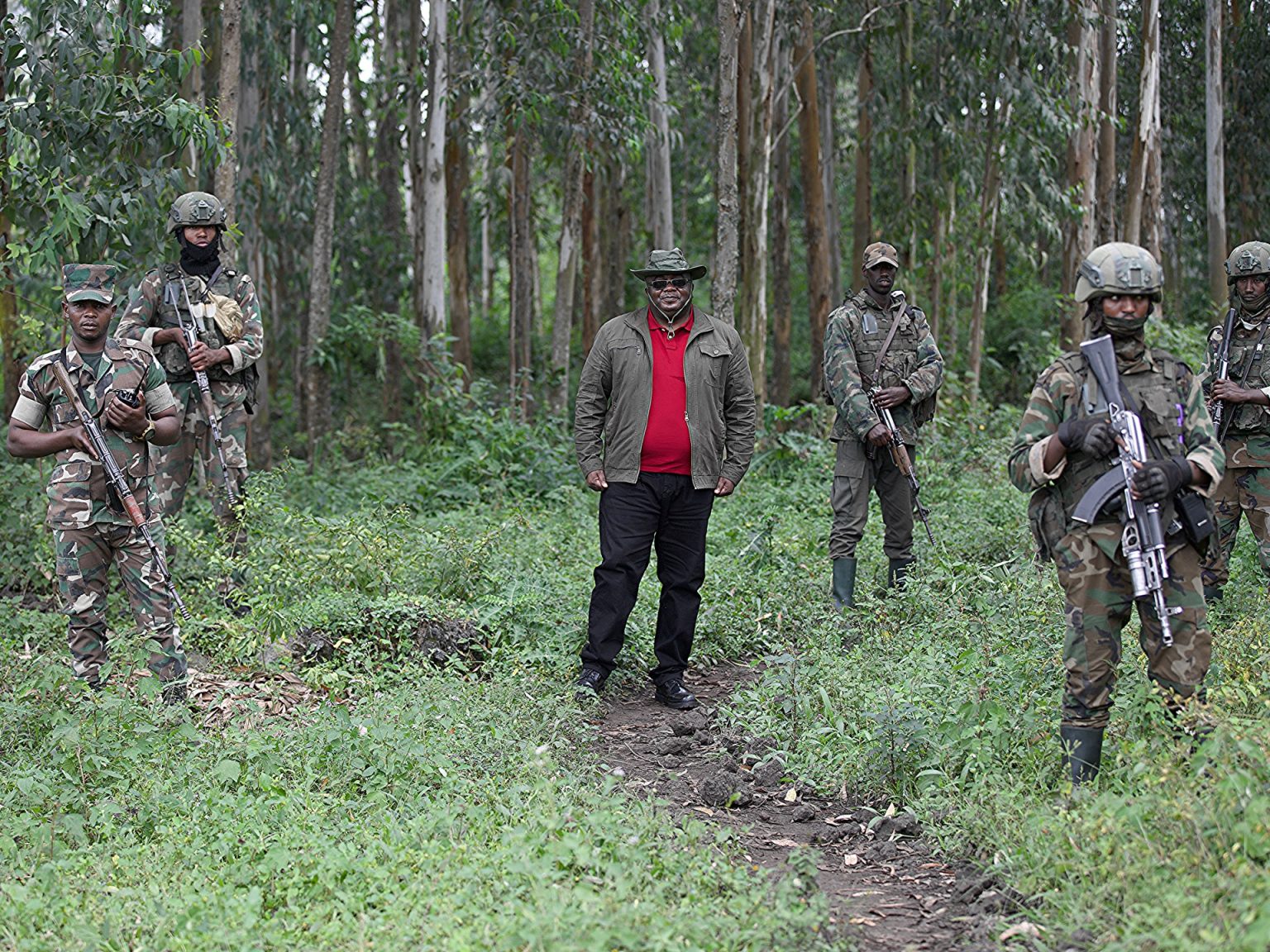The ongoing armed conflict in the eastern Democratic Republic of Congo (DRC) between the Congolese army (FARDC) and the M23 rebel group, reignited in 2022 after a period of dormancy, has created a humanitarian crisis, displacing nearly two million people. M23, originally formed from a mutiny within the FARDC in 2012, claims to be fighting to protect the Congolese Tutsi minority, who they say face discrimination and exclusion due to their ethnic ties to Rwanda. The Congolese government, however, views M23 as a major security threat, accusing Rwanda of backing the rebellion with troops and weaponry, an allegation Rwanda denies. Despite various peace initiatives and ceasefire attempts, including the Nairobi peace process and Angolan mediation, fighting persists, with M23 making significant territorial gains.
Bertrand Bisimwa, the political leader of M23, asserts the group is waging a “defensive war” for the survival of Congolese Tutsis, whom he claims are targeted by the government. He argues that the Congolese government uses the Tutsi community as a scapegoat to deflect attention from its own governance failures, inciting hatred and radicalization. Bisimwa maintains that M23’s actions are solely aimed at protecting these citizens and ensuring their rights as Congolese citizens are respected. He criticizes the government’s unwillingness to engage in dialogue and accuses them of prioritizing military solutions over peaceful negotiations.
Regarding the recent escalation of fighting in North Kivu, particularly in the Lubero territory, Bisimwa alleges that the Congolese government, seeking a military advantage before a scheduled meeting with Rwanda, launched a major offensive against M23, involving over 22,000 troops, including allied militias like the FDLR and Wazalendo. He claims that M23 was forced to defend itself against this aggression, resulting in the observed territorial gains. Bisimwa further accuses the Congolese government of deliberately reigniting the conflict to sabotage peace efforts.
Responding to accusations of territorial expansion and conquest, Bisimwa argues that M23’s advances are a direct consequence of the government’s offensive actions. He explains that the group only takes control of territories from which they are attacked, strategically silencing enemy fire and protecting civilians under their control. He points to the return of displaced families to M23-controlled areas as evidence of their positive impact, contradicting the UN’s narrative of displacement and control. Bisimwa criticizes the UN’s perceived bias and calls for a more realistic assessment of the situation on the ground.
Bisimwa expresses frustration with the Congolese government’s refusal to engage in dialogue with M23, accusing them of obstructing peaceful conflict resolution. He recalls the Nairobi peace process in 2022, where he claims M23 withdrew from certain areas to facilitate dialogue, only to have the Congolese army advance on their positions, restarting the conflict. He emphasizes that dialogue, not war, is the only way to address the root causes of the conflict and achieve lasting peace in eastern DRC. He calls on the government to either engage in constructive dialogue or allow the people of eastern DRC to find their own solutions.
Addressing specific accusations, Bisimwa denies any links with the ADF, an armed group affiliated with ISIS. He asserts that M23 has consistently denounced the ADF threat for over a decade, while the Congolese government downplayed its existence. He contrasts the government’s substantial military mobilization against M23 with their limited efforts against the ADF, implicitly questioning the government’s priorities. He also denies accusations of exploiting the Rubaya mines for Rwanda’s benefit, explaining that M23 took control of the area to neutralize a Burundian military training camp and subsequently implemented measures to protect the mines from exploitation, including banning M23 officials from involvement. He insists that existing mining operations continue under the same management, with M23 collecting only a small tax to maintain security. Finally, concerning the Virunga National Park, Bisimwa claims M23 is actively protecting the park from illegal activities such as logging and poaching, which he attributes to other armed groups and unpaid FARDC soldiers. He highlights M23’s efforts to educate the local population about the importance of preserving the park and its biodiversity.

